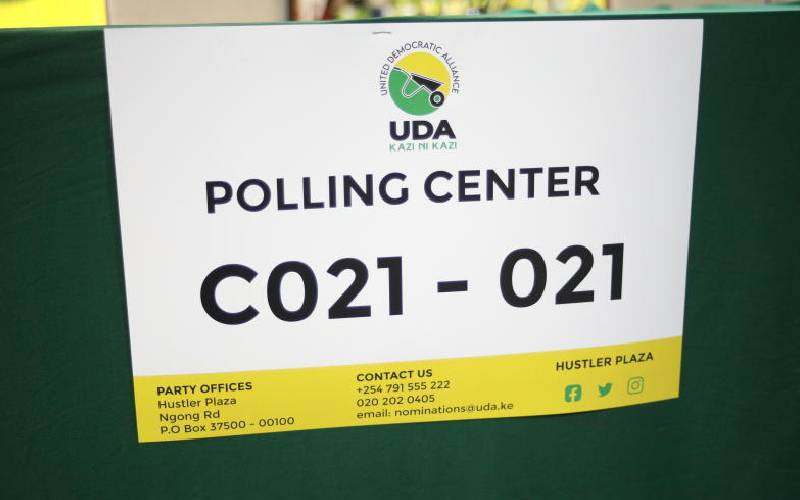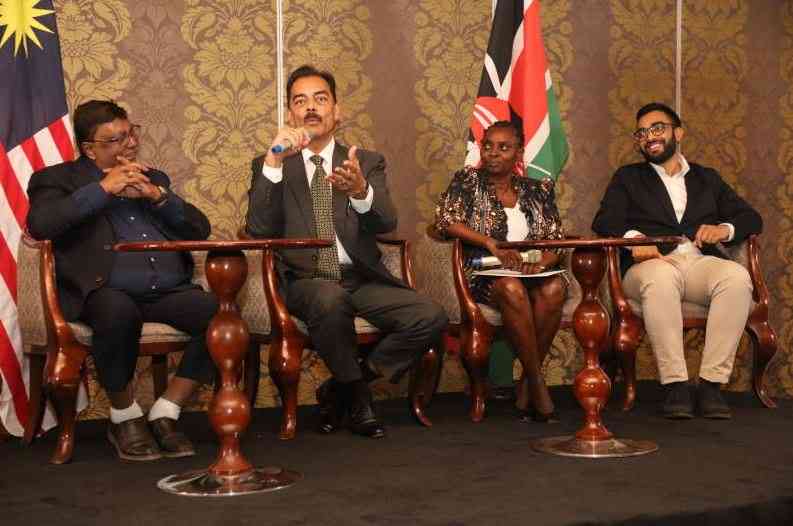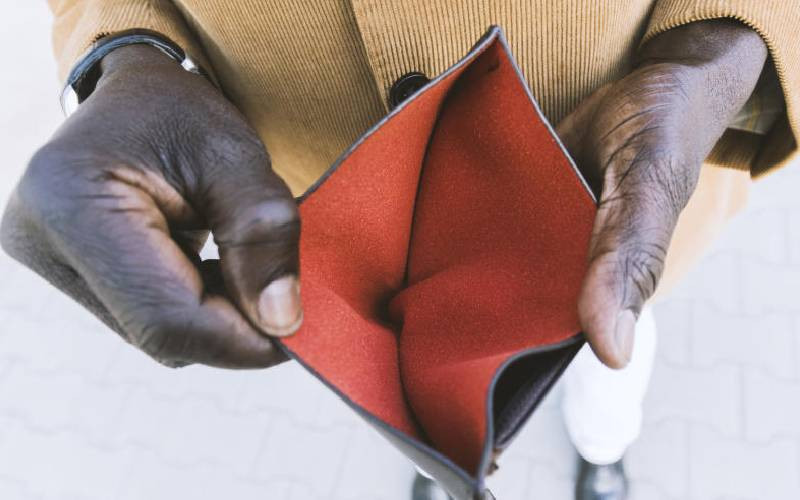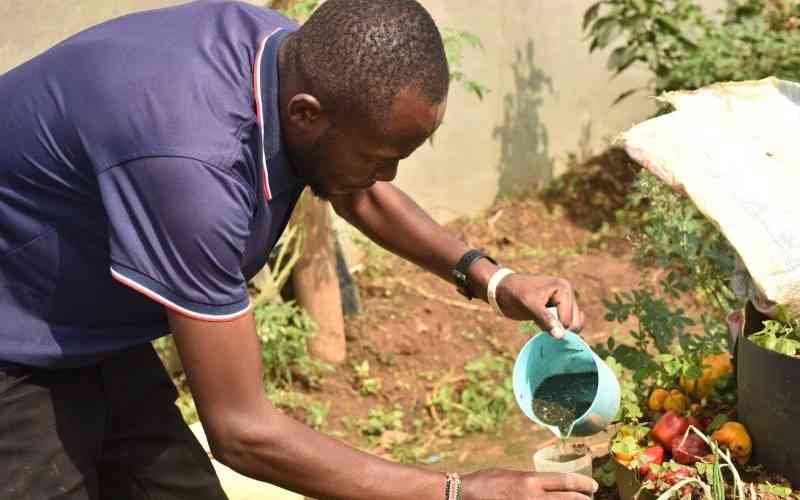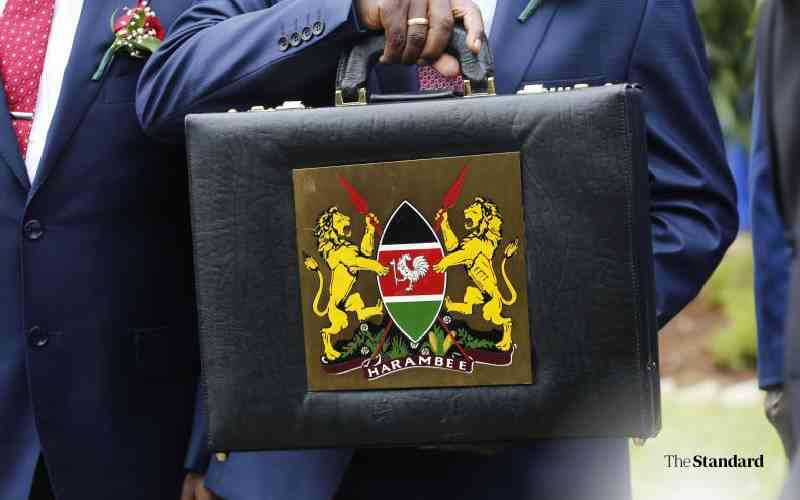
Recently, the media has been awash with excessive and irresponsible betting games that have caused an uproar in the country.
The betting scourge has led to increased suicide cases, destroyed livelihoods, and caught hundreds of people up in an endless debt cycle.
Reports also indicate that there is an undeniable wave of betting addiction across all genders and ages in the country – a social vice that has become prevalent in the last three years.
The youth who are mainly faced with the reality of unemployment seek solace in gambling and betting.
The betting industry in Kenya has grown in leaps and bounds, becoming less of a passive and leisurely activity and more of an alternative source of income for many of the young people fuelled by the chance of becoming overnight jackpot millionaires.
Several factors have led to this. One, the popularisation of the English Premier League (EPL) and local matches. To escape the throes of unemployment, many youths see betting as an avenue to quick cash and riches.
Two, the proliferation of promotional betting advertisements has extended the allure of betting and gambling. The messages encouraging betting are prominent on the radio and TV, on billboards, and social media platforms.
This has been exacerbated by the widespread access to the internet and availability of smartphones. Over 60 per cent of the population have access to mobile phones, which are commonly used to place bets.
Gambling is not a new concept; it has been around since BC, before even money was invented, and is present across various cultures and nations.
When done irresponsibly, it oftentimes comes off as predatory, especially to those in the low-income bracket of society, as it creates financial ruin and leads to addiction and mental health issues.
This is where we are as a nation, and having this conversation is the first step towards finding a lasting solution to this vice. It demands long-term and actionable safeguards for oversight of betting firms in the country.
The social vice we face today needs quick solutions, and it stems from the recognition that betting and gambling have far-reaching effects on people.
However, a complete ban on betting and gambling, as some have suggested, would have far greater ramifications compared to ensuring it operates within certain agreeable thresholds that are not punitive to the industry.
In perspective, the gaming and betting industry is a significant contributor to Kenya’s economy, generating up to Sh24 billion in revenue, according to statistics by the Kenya Revenue Authority (KRA), accounting for one per cent of the national budget.
Stay informed. Subscribe to our newsletter
Beyond its fiscal contribution, the industry has created job opportunities for thousands of Kenyan youth who work as marketing professionals, betting application developers and customer service agents. The existence of betting firms is crucial to the growth and development of societies and the nation.
Faced with a similar problem, Australia deployed a mechanism that sought to reduce gambling-related harm. This can be replicated in Kenya for better interaction between users and betting firms.
Australia implemented a loss limit for everyone in a high-intensity slot machine. For example, anyone using one of these machines must create a registered account, with maximum limits set on how much they can lose daily and monthly.
Back home, the Association of Gamblers of Kenya (AGOK) has recommended a raft of measures, including self-imposed responsible gaming guidelines, to address the challenges that plague the industry.
While in most cases, the limit to losses and gains is left to personal reflections and responsibility, the perceived notion that one can decide when to stop is not always the case, considering the addictive nature of betting.
The downside of it is that the more you do it, the harder it is to stop and break free. However, the self-exclusion tools that have been rolled out by gambling firms allow individuals to voluntarily and permanently restrict themselves from gambling activities. This gives the user autonomy to decide their betting behaviour.
Another welcome move is the introduction of a 24/7 toll-free helpline to offer confidential support to individuals struggling with addiction or mental health issues, which is critical to our operations. By safeguarding the well-being of our players, betting firms ensure that they share that responsibility.
This is a collective responsibility. Through collaborations with government and other state organs, policymakers, the private sector, and the media, we can establish better guidelines to safeguard society from the gambling menace, especially vulnerable groups, such as the youth.
This can also be achieved by reinforcing the mandatory responsible gambling messages and initiating campaigns that sensitise people to the importance of responsible betting and gambling.
- The writer is a media and strategic digital communications specialist
 The Standard Group Plc is a
multi-media organization with investments in media platforms spanning newspaper
print operations, television, radio broadcasting, digital and online services. The
Standard Group is recognized as a leading multi-media house in Kenya with a key
influence in matters of national and international interest.
The Standard Group Plc is a
multi-media organization with investments in media platforms spanning newspaper
print operations, television, radio broadcasting, digital and online services. The
Standard Group is recognized as a leading multi-media house in Kenya with a key
influence in matters of national and international interest.
 The Standard Group Plc is a
multi-media organization with investments in media platforms spanning newspaper
print operations, television, radio broadcasting, digital and online services. The
Standard Group is recognized as a leading multi-media house in Kenya with a key
influence in matters of national and international interest.
The Standard Group Plc is a
multi-media organization with investments in media platforms spanning newspaper
print operations, television, radio broadcasting, digital and online services. The
Standard Group is recognized as a leading multi-media house in Kenya with a key
influence in matters of national and international interest.



